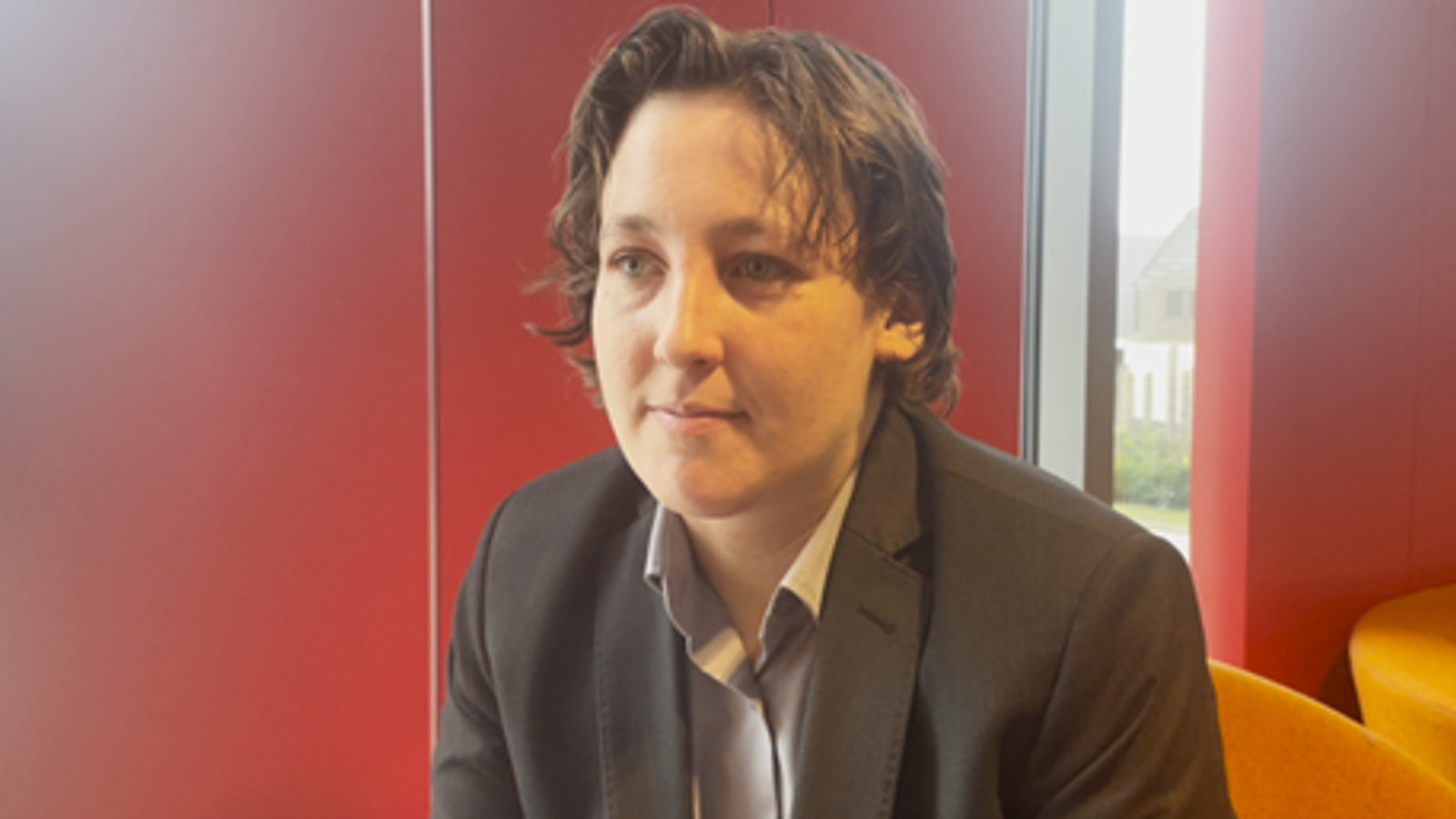The Impact Of Misogyny On Protecting Women And Girls: A Discussion With Mhairi Black

Table of Contents
The Manifestations of Misogyny Hinder Protection Efforts
Misogyny, the ingrained prejudice against women, manifests in numerous ways, creating systemic barriers that prevent effective protection. Understanding these manifestations is crucial to tackling the root causes of violence against women.
Systemic Barriers
Societal structures and institutions often perpetuate misogyny, undermining efforts to protect women and girls. Under-reporting of crimes is rampant due to a lack of trust in law enforcement, biased judicial systems, and inadequate legal frameworks specifically designed to address gender-based violence.
- Lack of funding for women's shelters: Many women lack safe and accessible refuge after experiencing violence.
- Insufficient training for police officers on gender-based violence: This leads to misinterpretation of cases and inadequate responses.
- Slow judicial processes: Justice delayed is justice denied, leaving victims vulnerable for extended periods.
Mhairi Black has consistently highlighted the inadequacy of systemic responses to gender-based violence, emphasizing the need for comprehensive legislative reform and increased funding for support services. She advocates for a complete overhaul of systems that currently fail to protect women effectively.
Online Harassment and Cyberbullying
The digital age presents new challenges, with online platforms becoming breeding grounds for misogynistic abuse. This online harassment significantly impacts women's safety and mental health.
- Online stalking: The constant fear of being tracked and monitored online is a significant source of distress.
- Doxing: Publicly releasing private information online can lead to harassment, threats, and even physical harm.
- Death threats: The normalization of online violence against women creates a climate of fear and intimidation.
- Non-consensual sharing of intimate images: Revenge porn is a devastating form of abuse with long-lasting consequences.
Mhairi Black has been vocal about the need for stronger online safety measures and holding perpetrators accountable for their actions. She stresses the need for social media platforms to take greater responsibility for moderating content and protecting users from abuse. She argues for stronger legislation to tackle online misogyny effectively.
Cultural and Societal Norms
Deeply rooted cultural norms and beliefs normalize misogynistic attitudes and behaviors, creating an environment where violence against women is tolerated or excused.
- Gender stereotypes: Limiting expectations based on gender perpetuates inequality and limits opportunities.
- Victim-blaming: Shifting responsibility for violence onto the victim instead of the perpetrator.
- Normalization of sexual harassment: Accepting inappropriate behavior as "just a joke" or "part of the culture."
Mhairi Black stresses the critical role of education in challenging these harmful norms. She emphasizes that cultural change begins with addressing deeply ingrained societal attitudes and beliefs. "We need to foster a culture of respect, where women are valued and their safety is prioritized," she notes.
The Impact of Misogyny on Access to Justice and Support Services
Misogyny significantly impacts women's access to justice and support services. Fear and mistrust often prevent women from seeking help, further compounding the issue.
Lack of Trust and Reporting
Many women and girls are reluctant to report incidents of violence and harassment due to fear of disbelief, victim-blaming, or further harassment.
- Fear of retaliation: The fear of reprisal from the perpetrator often prevents reporting.
- Lack of confidence in the justice system: Past experiences of inadequate responses can lead to a lack of faith in the system.
- Cultural stigma associated with reporting sexual assault: Shame and stigma prevent many women from coming forward.
Mhairi Black advocates for building trust between women and the justice system through improved training for law enforcement, victim support services, and greater sensitivity in handling these cases. She emphasizes the need for confidentiality and a belief-based approach to ensure that victims are believed and supported.
Inadequate Support Systems
Insufficient resources and support available to women and girls who have experienced violence or harassment further exacerbate the problem.
- Limited access to shelters: A shortage of safe and accessible housing options leaves many women vulnerable.
- Insufficient mental health support: The trauma of violence often requires long-term mental health support.
- Lack of financial assistance: Many women face financial hardship as a result of violence, limiting their ability to rebuild their lives.
Mhairi Black argues that increased funding for women's shelters, improved access to mental health care, and economic empowerment programs are crucial to providing adequate support. She stresses the need for comprehensive and holistic support services to aid victims' recovery.
Strategies for Combating Misogyny and Protecting Women and Girls
Combating misogyny requires a multifaceted approach that includes legislative changes, education, awareness campaigns, and empowering women and girls.
Legislative and Policy Changes
Stronger laws and policies are essential to hold perpetrators accountable and create a safer environment for women and girls.
- Stronger laws against gender-based violence: Laws need to be robust and effectively enforced.
- Improved data collection on violence against women: Accurate data is crucial for understanding the scope of the problem and developing effective strategies.
- Funding for preventative programs: Investing in prevention is crucial to long-term change.
Mhairi Black's work highlights the importance of effective legislation and policy changes in addressing misogyny. She actively advocates for policy reform to better protect women and girls.
Education and Awareness Campaigns
Education plays a vital role in challenging misogynistic attitudes and raising awareness about gender-based violence.
- Education programs in schools: Comprehensive sex education and programs addressing gender equality are vital.
- Public awareness campaigns: Raising public awareness can help challenge harmful norms and encourage reporting.
- Media representation: Challenging harmful gender stereotypes and promoting positive portrayals of women is crucial.
Mhairi Black advocates for comprehensive education programs to challenge harmful stereotypes and promote gender equality from a young age.
Empowering Women and Girls
Empowering women and girls through education, economic opportunities, and access to resources is crucial for long-term change.
- Access to education: Education is a key tool for empowerment and social mobility.
- Economic independence: Financial security allows women to escape abusive situations and build independent lives.
- Access to healthcare: Access to reproductive healthcare and mental health services is essential.
Mhairi Black advocates for investing in women's economic empowerment and ensuring their access to quality education and healthcare. She believes that empowering women is a critical step in breaking the cycle of violence.
Conclusion
Misogyny has a profound and devastating impact on the safety and well-being of women and girls globally. Addressing this issue requires a collective effort involving legislative change, education, awareness campaigns, and the empowerment of women. We must challenge harmful norms, advocate for policy changes, and create a world where women and girls are safe, valued, and empowered. Let's join forces to confront misogyny and its impact on women's protection and build a safer future for all.

Featured Posts
-
 Black Hawk American Airlines Collision Analysis Of Pilot Rebecca Lobachs Actions
Apr 29, 2025
Black Hawk American Airlines Collision Analysis Of Pilot Rebecca Lobachs Actions
Apr 29, 2025 -
 Pace Of Rent Increases Slows In Metro Vancouver Housing Costs Still Climbing
Apr 29, 2025
Pace Of Rent Increases Slows In Metro Vancouver Housing Costs Still Climbing
Apr 29, 2025 -
 Papal Conclave Debate Over Convicted Cardinals Voting Eligibility
Apr 29, 2025
Papal Conclave Debate Over Convicted Cardinals Voting Eligibility
Apr 29, 2025 -
 Open Thread Community February 16 2025
Apr 29, 2025
Open Thread Community February 16 2025
Apr 29, 2025 -
 San Franciscos Anchor Brewing Company Shuts Down
Apr 29, 2025
San Franciscos Anchor Brewing Company Shuts Down
Apr 29, 2025
